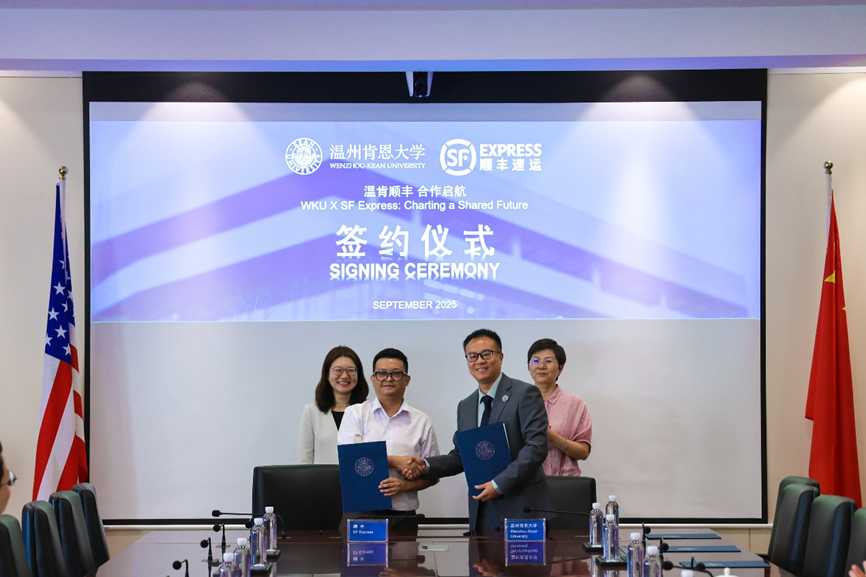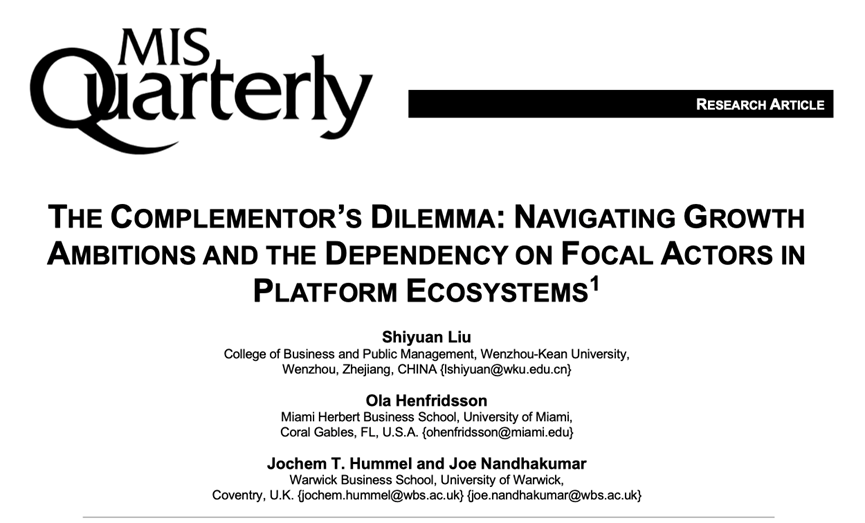How does green development contribute to China's modernization with Chinese characteristics?
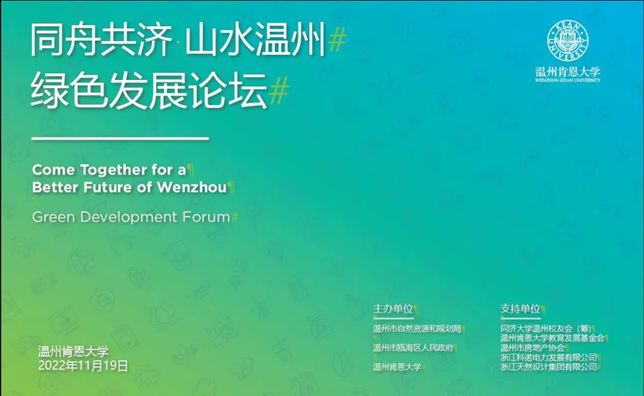
In the report to the 20th National Congress, General Secretary Xi Jinping proposed promoting green development to promote harmonious coexistence between man and nature. Over the past decade of the new era, China's ecological civilization construction has achieved remarkable results in ecological and green development that have attracted worldwide attention. On November 19th, the "Together for the Same Boat: Wenzhou Landscape" Green Development Forum, hosted by the Wenzhou Natural Resources and Planning Bureau, the Ouhai District People's Government of Wenzhou, and Wenzhou-Kean University, brought together domestic and foreign experts and think tanks to explore new paths for green development and to help the country achieve its dual carbon goals as soon as possible.
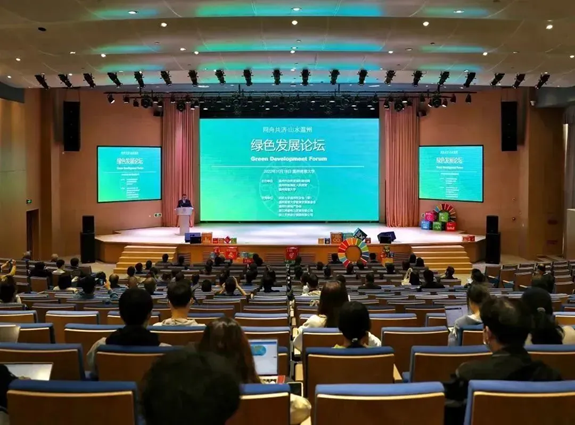
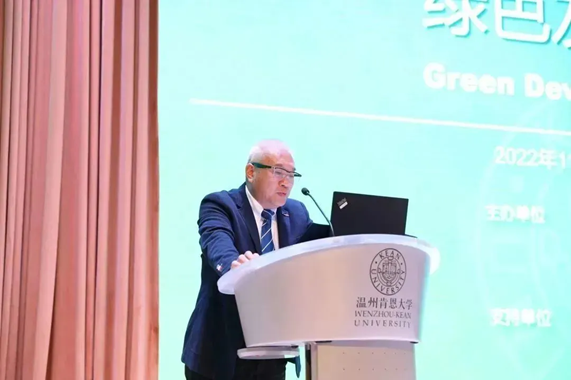
"The school leverages its advantages in international education to build a smart and green campus, promote green education, and fully develop into a leading force in serving the dual carbon technology innovation," expressed Wang Beijiao, Secretary of the Party Committee of Wenzhou-Kean University, affirming the university's determination to support Wenzhou in building a new industrial pattern of green and low-carbon development and coordinated development. Feng Jinkao, Member of the Party Group and Deputy Director of the Standing Committee of the Wenzhou Municipal People’s Congress pointed out that promoting development and achieving new results in green development require the efforts of all sectors of society. Feng Shenhong, Executive Deputy Secretary of the Party Committee of Tongji University, shared the deep connection between Tongji University and Wenzhou, and emphasized that Tongji University will continue to leverage its disciplinary advantages to support the green transformation of society and the implementation of the national "dual carbon strategy."
01 Expert opinions ignite brainstorming sessions
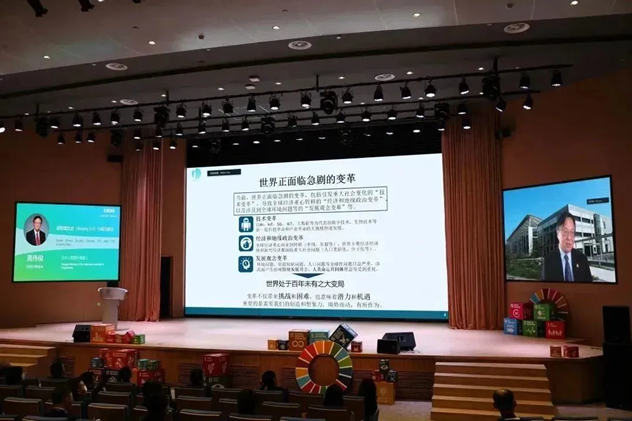
Foreign Academician of the Japan Academy of Engineering, Gao Weijun
In the keynote speech segment, Dr. Gao Weijun, a foreign academician of the Japan Academy of Engineering, delivered a presentation titled "Society 5.0 and Urban Construction." He pointed out that humanity is experiencing the wave of digital transformation, and Society 5.0, as a super-smart society that creates new value, is a society centered around people. It integrates virtual and real spaces at a high level, while simultaneously addressing development and social issues. Dr. Gao emphasized that achieving Society 5.0 requires the participation of the entire society and all citizens. It involves introducing advanced technologies such as robots and AI into all industries and social life. By implementing measures such as smart agriculture, food sales, and energy management systems, products and services are provided indiscriminately based on various needs, achieving interconnection in multiple domains.
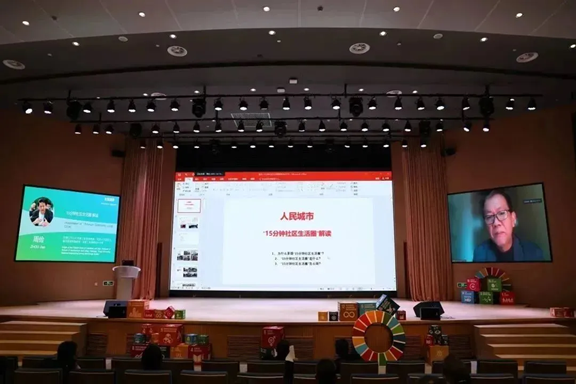
Professor Zhou Jian, School of Architecture and Urban Planning, Tongji University
French literature and arts knight medalist, Professor Zhou Jian from the School of Architecture and Urban Planning at Tongji University, and national master of engineering survey and design, presented "Interpreting the '15-Minute Community Life Circle'". What is it? Why is it important? How can it be achieved? Focusing on these three aspects and starting from meeting people's aspirations for a better life, he expressed the vision of creating a composite concept of a living circle that is "livable, business-friendly, enjoyable, educational, and nurturing". Through measures such as the publicization of existing space utilization, highlighting the humanistic connotations of residential areas, and upgrading public facilities, the goal is to create a "15-minute community life circle".
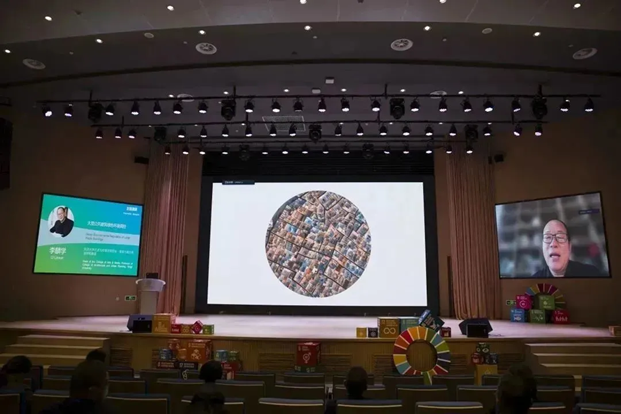
Li Linxue, Dean of the School of Arts and Media at Tongji University
Li Linxue, Dean of the School of Arts and Media and Professor at the College of Architecture and Urban Planning at Tongji University, delivered a speech titled "Green Environment Regulation of Large-scale Public Buildings." Through three aspects: architectural environment regulation, green regulation prototype, and practices of large-scale public buildings, he presented insightful perspectives on green environment regulation, citing examples such as the Hangzhou Civic Center and the China Commerce Museum.
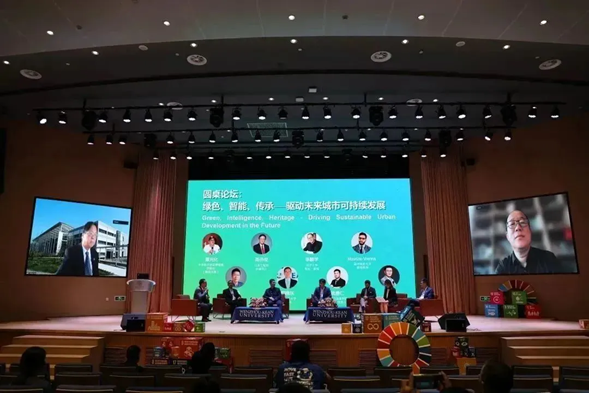
02 The experience of Wenzhou-Kean University shines at the forum
In the roundtable discussion "Green, Smart, Inheritance - Driving Sustainable Development of Future Cities," guests including Gao Weijun, Li Linxue, Chen Cang, Zhou Jian, Zhu Haibin, Yao Tangren, Zheng Xiaodong, Maurizio Vrenna, and Dong Guanghua, each from their respective fields, offered their unique insights and reflections on the concept of green development in Wenzhou, how design can empower green development, and the intersection of green development with artificial intelligence. Wenzhou-Kean University has been committed to building a high-level, international sustainable development green school in campus planning, education, teaching, and scientific innovation. Zheng Xiaodong, Deputy Secretary of the Party Committee and Vice President of Wenzhou-Kean University, stated that Wenzhou-Kean will continue to build more international exchange and cooperation platforms to support the green and low-carbon development of Wenzhou.
As one of the first batch of "Green Schools (Higher Education Institutions)" in Zhejiang Province, Wenzhou-Kean University places green and sustainable development at its core. It focuses on both the construction of campus green spirit and culture and the hardware and software construction of low-carbon campus operation. The university plays a pioneering and leading role in achieving carbon neutrality in society. Wenzhou-Kean University has established a leading group for the creation of green schools and joined the carbon neutrality initiative of Chinese universities. Since the launch of the green school creation initiative, with the strong support of faculty and students, our university has implemented various sustainable development measures such as waste sorting, water and electricity conservation, and CD-ROM action. Next steps include creating a green campus website, establishing an energy management platform, and developing mid- to long-term plans for green campus development.
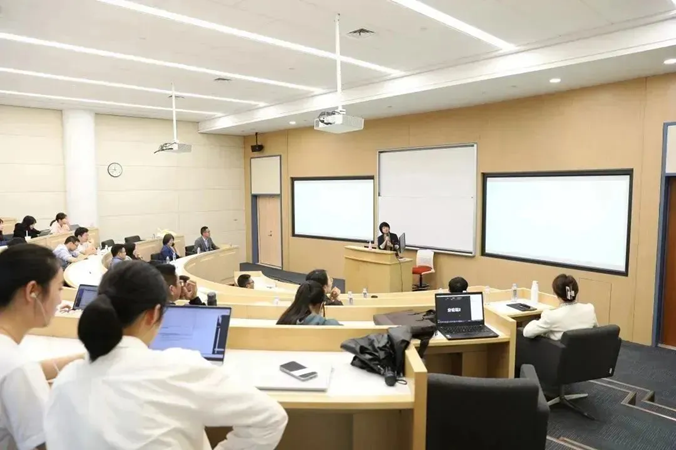
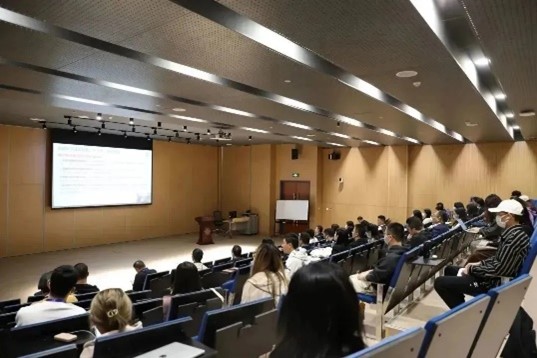
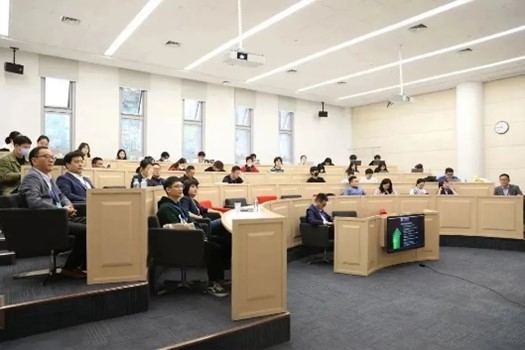
The forum, conducted in a combination of online and offline formats, highlighted the development philosophy of "making cities smarter, life more low-carbon, and the environment better." The day also featured sub-forums on the themes of "Green Low Carbon," "Digital Intelligence," and "Creative Culture." Scholars and experts deepened academic exchanges in creativity, promoting urban intelligence and green development. Assistant Professor Maurizio Vrenna from the School of Architecture and Design and Assistant Professor Chen Rongjuan from the School of Business presented on "Sustainable Design: From Products to Service Systems" and "Big Data Services Supporting Sustainable Development," respectively. Student representatives also reported on the "Green Campus Action."
Among the attendees at the forum were Liang Chao, member of the Standing Committee of the Wenzhou Municipal People's Congress and candidate for deputy director, Zeng Ruihua, Secretary of the Ouhai District Committee of Wenzhou City, Lu Yingnan, Executive Deputy Director of the Office of External Relations and Development at Tongji University, Tan Hongwei, Executive Deputy Director of the Green Building and New Energy Research Center at Tongji University, Liang Hao, Director of the Green Building Department at the Ministry of Housing and Urban-Rural Development's Science and Technology and Industry Development Center, Yang Yixin, Vice President for Academic Affairs at Wenzhou-Kean University, and Lin Chaochao, Vice President of Wenzhou-Kean University, among others.
Text: Wang Zhiyao
Images: Shang Rui
Initial Review: Xiang Wenwei
Final Review: Wang Shu
Editor: Media Center
人划线

